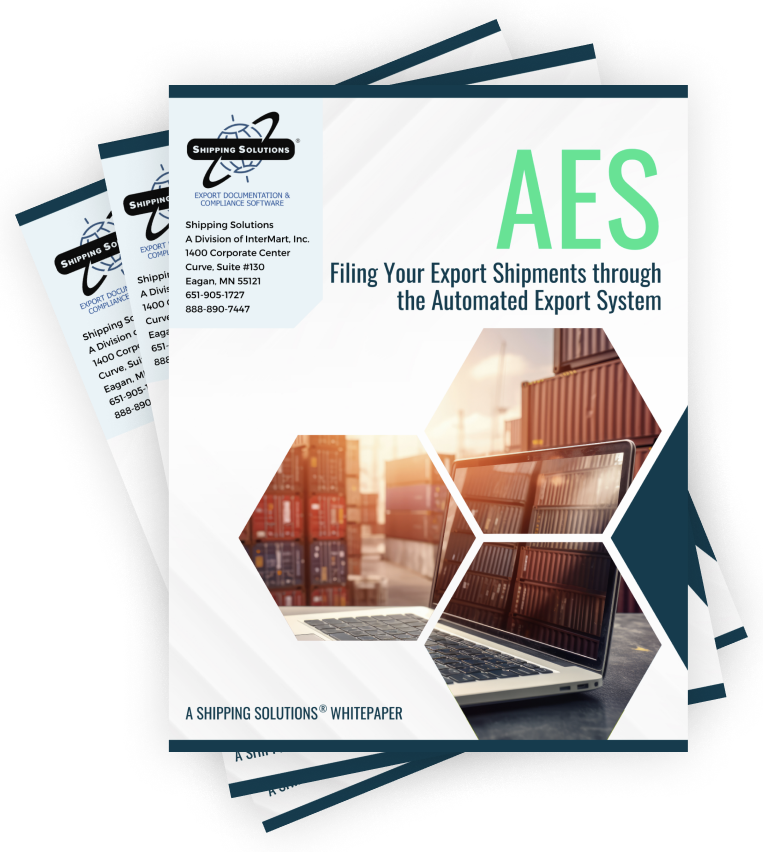The International Trade Blog Export Compliance
Why I Hate Routed Export Transactions
On: April 30, 2025 | By:  David Noah |
5 min. read
David Noah |
5 min. read
 People sometimes call me a control freak. And when it comes to my company, I can’t deny it—I like to know what’s going on when it comes to my business. That’s why I can’t stand the idea of a routed export transaction.
People sometimes call me a control freak. And when it comes to my company, I can’t deny it—I like to know what’s going on when it comes to my business. That’s why I can’t stand the idea of a routed export transaction.
You see, when you agree to a routed export transaction, what you’re ultimately doing is giving up control. And when you give up control, you’re much more likely to get in trouble.
(Watch this quick video explaining the key differences between routed and standard export transaction, and why they matter.)
Here are just a few notable risks exporters take when they agree to a routed export transaction:
1. You can’t guarantee the Electronic Export Information (EEI) is filed correctly.
In a routed export transaction, the Foreign Principal Party in Interest (FPPI)—the party who purchases the goods for export or to whom final delivery or end use of the goods will be made—authorizes the preparation and filing of the electronic export information (EEI) through the Automated Export System (AES).
They may do this either by authorizing the U.S. Principal Party in Interest (USPPI) to file the EEI or by authorizing an agent to prepare and file the EEI.
When the FPPI authorizes an agent to prepare and file the EEI, the USPPI must provide information to the U.S. agent regarding the shipment. However, by not doing this yourself, you take a risk. Even if you have supplied the correct Schedule B or HTS codes for your goods and the proper export licensing information for your products, the agent may accidentally (or not accidentally) misreport and misuse this information. While you wouldn’t technically be liable for this misinformation under the U.S. Foreign Trade Regulations (FTR), you could be dragged into the investigation, which would cost you time and money.
2. You aren’t in complete control of your export compliance.
With a routed export transaction, you are giving up at least partial control of one cornerstone of successful exporting—compliance and oversight.
Your customer, most likely located outside the United States, probably does not understand or even care about U.S. export regulations. In fact, it might be in their best to ignore or avoid these export controls. However you, as the exporter, do not have that luxury.
You’re still responsible for checking the foreign purchaser’s information against various governmental restricted party lists for potential prohibited end users, looking for red flags that may indicate prohibited end use of the merchandise undergoing exportation, and determining if an export license is required for the merchandise. Penalties for non-compliance can be significant, including fines, loss of export privileges and, in the most extreme cases, jail time.
3. You give up the ability to choose your freight forwarder.
From our article, How to Choose the Right Customs Broker and Freight Forwarder:
Your customs broker and freight forwarder should be your partners in every sense of the word. Be sure to give them all the information they need to handle your entries. Similarly, insist on getting all the information from your broker that you need to have a successful import program. Most importantly, if you have questions about how your broker or forwarder is handling your account, ask!
OK, here’s the deal: When you choose a routed export transaction, you give up the right to find a good freight forwarding partner (one who fits the criteria listed above and in the article). You’re at the mercy of the other people in the transaction, and you have little-to-no say in the quality of the partners they choose to handle your business.
4. You have no way to know what’s going on with your shipments.
So many things can go wrong when you aren’t in complete control of your exports—unfortunately, that’s exactly what happens with a routed export transaction.
Depending on the terms of the sale you negotiated with the buyer, you may be required to present shipping documents to the bank in order to receive your money under a letter of credit or other option. If you’re not controlling the shipment, you might not have easy access to the bill of lading or the documents you need. And if there are mistakes on the documents, which could delay payment, good luck getting those changed in a timely manner.
In one extreme example, an exporter discovered that their goods never left the United States and were being sold at discounted prices in a chain of U.S. retail stores. They had to buy back their discounted merchandise to prevent competing against their own products.
Finally, remember the higher the price your foreign buyer pays for freight, the higher the cost of your goods, which could make them less competitive. Even if you’re not stuck with freight charges, it may be to your advantage to ensure your customer pays the lowest possible freight.
So, what can you do?
Take charge of your exporting.
- Clearly define export responsibilities in your international sales contracts.
- Proactively discuss routed export transactions with new customers.
- Aggressively limit the use of routed export transactions in your agreements.
A routed export transaction may seem like a convenient option, but it opens the door to loss of control, increased compliance risk and financial uncertainty. Protect your business by staying hands-on throughout the export process.
Like what you read? Subscribe today to the International Trade Blog to get the latest news and tips for exporters and importers delivered to your inbox.
This article was first published in January 2016 and has been updated to include current information, links and formatting.

About the Author: David Noah
As president of Shipping Solutions, I've helped thousands of exporters more efficiently create accurate export documents and stay compliant with import-export regulations. Our Shipping Solutions software eliminates redundant data entry, which allows you to create your export paperwork up to five-times faster than using templates and reduces the chances of making the types of errors that could slow down your shipments and make it more difficult to get paid. I frequently write and speak on export documentation, regulations and compliance issues.


